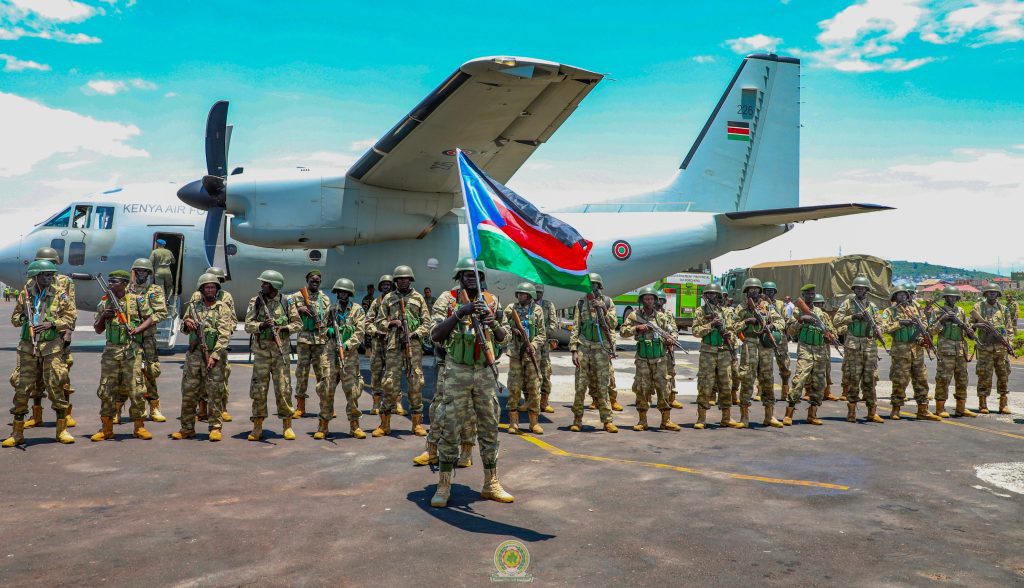A first batch of South Sudanese soldiers arrived in Goma, in the east of the Democratic Republic of Congo on Sunday. The group of at least 45 soldiers is joining a regional military force in the region.
The arrival of South Sudanese troops in the eastern Democratic Republic of Congo (DR Congo) marks an important milestone in the region’s peacekeeping efforts. On Sunday, a first batch of 45 South Sudanese soldiers arrived in Goma, the largest city in the region, to join the local military force. The deployment of these troops is an essential part of the United Nations’ strategy to help restore security, stability and peace in the region.
The South Sudanese troops will be part of the United Nations Organization Stabilization Mission in DR Congo (MONUSCO), which is tasked with protecting civilians and restoring law and order in the region. The mission has been in place since 1999, and its forces are made up of more than 18,000 personnel from numerous countries. The South Sudanese troops will play an important role in helping to maintain the peace in DR Congo, and their presence is expected to be a major boost for the region.
Last month, South Sudanese President Salva Kiir announced that his country has sent a battalion of 750 soldiers to DR Congo under the East African regional force (EARF) tasked to restore peace in the country’s restive east,
The South Sudanese soldiers are also expected to help strengthen cooperation between the DR Congo and South Sudan by providing training and support to local military forces. This will help to ensure that the two countries can work together to find a lasting solution to the security challenges in the region. The presence of South Sudanese troops in Goma is a welcomed sign of progress, and a symbol of the ongoing commitment of all parties involved in the peacekeeping process in DR Congo.
The seven-nation East African Community (EAC) military force was created last June. It is due to oversee the withdrawal of M23 fighters from eastern DRC.
The East African Community (EAC) military force was created in June of last year with the purpose of overseeing the withdrawal of M23 fighters from eastern DR Congo. This week marks the first tangible result of the force’s work, as South Sudanese troops have arrived in the region to help enforce the process. The deployment of these troops is a pivotal step towards ensuring the withdrawal of M23 forces, and a sign of progress towards a more secure and stable eastern DRC.
The EAC force is composed of troops from each of the seven EAC member countries, including Uganda, Kenya, Rwanda, Burundi, Tanzania, South Sudan, and Ethiopia. Each member state has pledged to contribute troops to the force, with over 4,000 soldiers currently on the ground in eastern DRC. The South Sudanese contingent is only the first of many more to come from the other member nations, and with the arrival of their troops, their commitment to the cause has now been established.
The deployment of these troops marks an important milestone for both the EAC and DR Congo. It demonstrates the commitment of the EAC to the cause and also shows that the DR Congo is willing to accept external help in order to restore peace and security. Now, with the presence of these troops, the process of withdrawing M23 forces and restoring order can begin in earnest.
The resurgence of the M23 rebel group in May this year prompted regional and international efforts to bring an end to the decades-long insecurity in eastern DR Congo, where over 120 armed groups roam.
Meanwhile, the South African National Defence Force 4 SA Infantry Battalion (TF Charlie) is preparing to deploy to the Democratic Republic of Congo (DRC).
In preparation, the soldiers are training hard, ensuring they are well equipped and fully prepared for the mission ahead. Every soldier understands the gravity of their mission and the importance of the task at hand.
